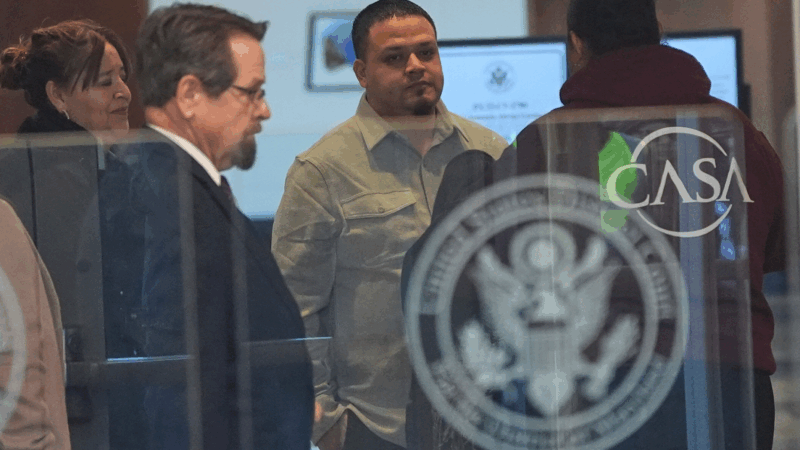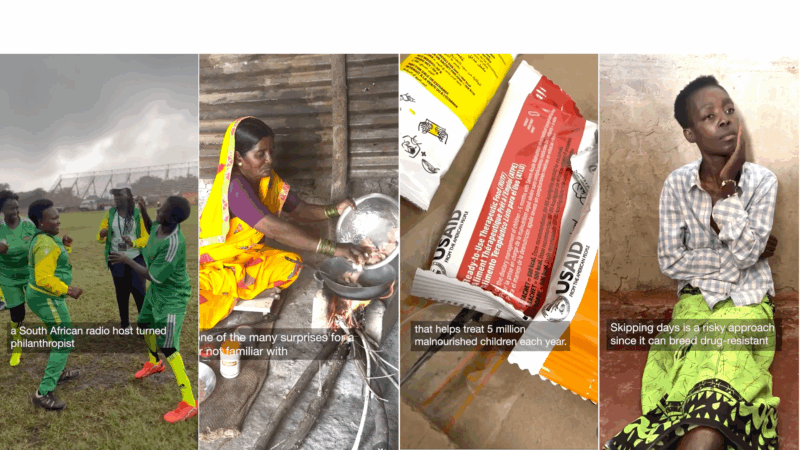Problems in Alabama’s Prisons Pose Challenges For The State
It’s been an eventful week for the Alabama Prison System. On Tuesday, Governor Robert Bentley announced initial plans for rebuilding the state’s overburdened and underfunded prison system.
Governor Bentley said Alabama would work in partnership with private agencies and the government to examine the prison system and suggest reforms. Bentley’s announcement came on the same day the Southern Poverty Law Center released a highly critical report on medical care in Alabama prisons.
This all follows a scathing Department of Justice report released earlier this year, detailing cases of rape and sexual abuse at the Julia Tutwiler Prison for Women.
For WBHM, Les Lovoy outlines the numerous challenges facing Alabama’s prisons, and what the state is doing to solve the problems.
For some women, Julia Tutwiler Prison for Women is home. Unfortunately, for others, it’s much more.
According to Marsha Colby, her time at Tutwiler was “definitely a hell on earth.” Today Colby lives with her husband and teenage kids, in Sumerford, a quiet rural community about an hour and a half north of Birmingham. In 2007, she was convicted of capital murder and spent 5 years in Tutwiler. Her conviction was eventually vacated. Colby pleaded to a lesser crime and was released.
She describes the conditions and over-crowding as horrendous, and says the guards’ treatment was particularly harsh.
“The verbal abuse, just downgrading, continuously downgrading them,” she remembers. “I know several deaths that probably could have been avoided. It’s done emotional damage, more than what I would have ever thought.”

Charlotte Morrison is a senior attorney at the Equal Justice Initiative in Montgomery. The EJI originally brought abuses at Tutwiler to the Justice Department’s attention. She says part of the problem is that some guards have a long history of abusing female inmates.
“New staff comes in, young staff, who look up to these folks, folks who are training them, who are helping them understand how to deal with problems in the prisons and how to respond to them” she said. “They’re trained by those officers.”
Another huge problem facing Alabama is overcrowded prisons. Alabama has the third highest incarceration rate in the U.S. Yet the state hasn’t set aside the funds to deal with the increase in population, and has no plans to build new prisons.
Alabama’s prisons do have some bright spots. At J.F. Ingram State Technical College’s programs inside Tutwiler, women are involved in life skills and vocational skills programs. It’s preparing them for jobs after prison, in fields from welding to cosmetology.
But despite programs like these, critics say the prison system isn’t doing enough to help inmates get ready for life on the outside. Carol Gundlach is a policy analyst for the Arise Citizen’s Policy Program Network. It’s a non-profit agency, which studies crime as it relates to poverty. Gundlach wonders if the prison system could do better with the $17,000 per year they spend on each prisoner.
“I keep thinking that we can send people to college for what we’re keeping, sending them to prison, she explained. “And, I just think the public really needs to ask themselves, is this what we want. Do we want a state where we lock up a lot of people for a long time at a lot of expense to the rest of us, or can we figure out a better way to do this.”

An abusive culture in some state prisons. Overcrowding and not enough money for new facilities. A lack of resources to provide inmates with programs that can prevent recidivism.
It’s a tall order for Kim Thomas, Commissioner of the Department of Corrections. He’s trying to find solutions. Appointed in January of 2011, Thomas is scrambling to right wrongs that have been going on for decades. He says the responsibility and solutions to current problems extend past just his department.
“It takes all the branches of government, both political parties working together and it involves the locals too,” Thomas said. “The district attorneys need to be involved in helping solve the problem. The locals with respect to starting a community corrections program, so everybody needs to get to the table and solve these issues.”
One way of addressing the problems is the legislature’s creation of a new task force — The Justice Reinvestment Initiative. State Senator Cam Ward, of Alabaster, is chair of the new task force. Ward’s also the chairman of Alabama’s Prison Oversight Committee. He notes that in 12 years in the legislature, it’s the first time the state has taken prison reform seriously.
According to Ward, “Ninety percent of the issues are awareness and recognizing the problem.”
And Ward says that’s significant.
“I think what it does is, it’s going to give us a blueprint to go forward,” Ward noted.
Governor Bentley has said several outside agencies will be helping create that blueprint. The state is working with the Department of Justice, the Pew Charitable Trust, and the Council of State Government’s Justice Center.
However, if the 2015 legislative session doesn’t make substantial changes in Alabama’s prisons, the Justice Department could very well take over the system.
Russia attacks Kyiv, killing 1 and wounding many ahead of Ukraine-US talks
Russia attacked Ukraine's capital with missiles and drones early Saturday morning, killing one and wounding over 20 people a day before talks between Ukraine and the U.S., local authorities said.
Myanmar is set to hold phased elections. Here’s why they’re being called a ‘sham’
Myanmar's military rulers are holding a general election in phases starting Dec. 28 amid the country's civil war. The head of the U.N. says the vote will be anything but free and fair.
Judge to hold hearing on whether Kilmar Abrego Garcia is being vindictively prosecuted
A federal judge this week canceled the trial of Kilmar Abrego Garcia, and scheduled a hearing on whether the prosecution is being vindictive in pursuing a human smuggling case against him.
Thailand and Cambodia sign new ceasefire agreement to end border fighting
In addition to ending fighting, the agreement calls for no further military movements by either side and no violations of either side's airspace for military purposes.
Top Instagram reels from Goats and Soda in 2025: Plumpy’Nut, aid cuts, soccer grannies
Our most-viewed Instagram videos include reports from a Rhode Island factory that makes special food for malnourished children and from a tournament for soccer-playing "grannies."
Should the U.S. model its vaccine policy on Denmark’s? Experts say we’re nothing alike
The Trump administration wants to revamp U.S. childhood vaccination recommendations to align with some other peer nations, including one tiny country in northern Europe.








